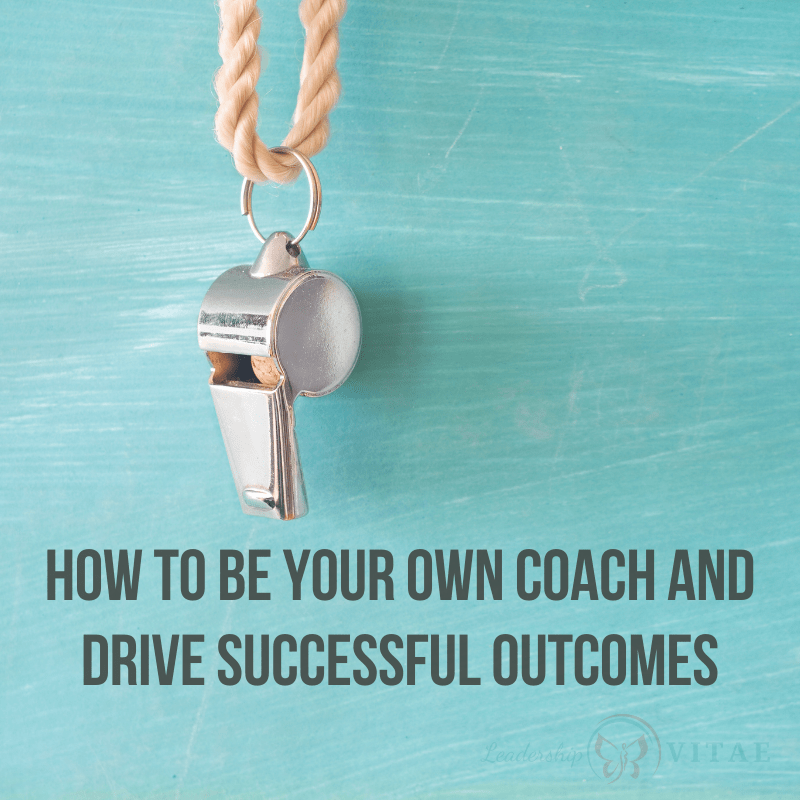
A few years ago, I was going through a relatively amicable divorce. Amicable, but still disruptive. In addition to starting a year of experiments, I decided to put myself through a coaching program.
My former executive coach, Carlotta, taught the program. She recommended it years earlier when she was coaching me. At the time I wasn’t ready, but suddenly I had every other week free and a desire to focus on anything else.
As part of the program, we were expected to coach a willing participant. I explained about the divorce to Carlotta, and told her I was in no condition to coach anyone else. Instead, I wanted to coach myself.
Eventually, I ended up meeting the coaching requirement and receiving my certification. However, it put me on the path of putting my coaching practices to work on myself first, before I would ask anyone else to try them.
Today, I was reminded of that during a call with a woman I mentor.
The power of stories
While I was on vacation last week, I brought a bunch of books with me. While I interspersed some historical fiction to cleanse my brain, I selected three non-fiction books to fuel it.
One such book was “Narrative Coaching.” I’ve been a writer most of my life, and think of myself as an anecdotal leader, so anything that involves storytelling has me at the word go. The idea of stories as a part of coaching had me hooked before I even opened the cover.
What I like about the book is that it gave me science and repeatability to a lot of what I experienced when I was coached years ago. It allowed me to reconnect what I did at the time to practices that I’ve developed as a coach myself.
It also gave me language for some of the inner work I’ve been doing over the last year during covid. What we can name, we can repeat, avoid, or change with intention.
The premise of narrative coaching is simple. The stories we tell ourselves have power. If we want to change outcomes, we have to determine what stories we are telling ourselves and decide whether they are serving us. If not, why not and what story would better suit us going forward?
“Don’t be a hypocrite”
During the call today, my mentee and I were discussing changes going on in the organization. She asked how I was faring, and what was going on with my role. I explained that I wasn’t sure, but that I’d be having conversations with some of our leaders in the coming days.
At one point, I expressed hesitation about these discussions because I don’t want to be seen as opportunistic. Her response stopped me in my tracks, and also made me laugh.
“Don’t be a hypocrite.”
She reminded me that I’d be the first one to tell her to advocate for herself, and have several times before. So why wasn’t I willing to practice what I preach?
I told her about the book, and said that I needed to examine the story I was telling myself. Why would I call myself opportunistic? Is it true? If not, then how do I change my inner narrative to better serve me?
I thanked her for the reminder and reflected on what I was reading. How I was using narrative coaching to examine, challenge, and reframe my own stories. As the conversation continued, we used the same technique to talk through some of the challenges she’s navigating as well.
The steps to self-coaching
While I may have trained as a coach, none of us need to be a professional to coach ourselves. While Carlotta, my executive coach, absolutely changed my life, what she gave me were tools to help myself. And tap into my love of learning to continue that work, long after our sessions came to a close.
As long as we are open to examining our truths, and facing the discomfort they may bring, we can self-coach. This isn’t to say it’s easy. Or that we might not need support from our circle or a mentor. However, we can all follow four steps to help us reframe our narratives and achieve different outcomes.
- What is the story I’m telling myself? In my case, it was that advocating for myself was opportunistic.
- Examine and challenge the story. Was I really being self-serving? Or do I believe that women can and should advocate for themselves, and that I’m in the best position to communicate my interests and abilities?
- Reframe the narrative. By sharing my interests, it allows decision-makers the information needed to align my energy and passions to the role that will create the most value to the company.
- Put it into practice. Once I created this new narrative, I practiced saying it out loud. I’ll put it to use in upcoming discussions. Even if I have self-doubt, or feel uncomfortable, practice will make it easier over time.
What’s your story?
We create meaning through storytelling. The beautiful thing about stories is that we can rewrite them. The story of yesterday doesn’t have to be the story of today or tomorrow.
That is both powerful and potentially problematic. If the stories we tell ourselves remain hidden to us, we may feel like we’re in the passenger seat of our own lives. We may act and react in ways that may not serve the life and outcomes we want.
Instead, if we are mindful of the stories we’re telling ourselves, we can recognize they are malleable. That they are just that – stories – and can be retold.
If you find yourself wanting a different outcome, and can’t seem to get traction, consider your story. What is the story you’re telling yourself about your current situation, and the potential story the new outcome might create? From there, you can decide the truth in those narratives, and whether it’s time to shift them.
When we name something, we don’t give it power. We give ourselves power. Once we name it, we can accept, reject, or change it.
What’s your story? Make it a good one on purpose.








